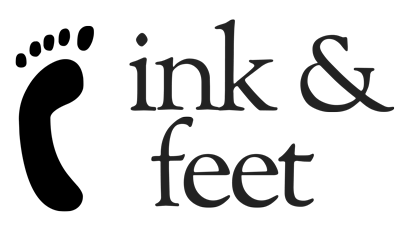
President Trump, and Putting Down the Rope
Yesterday, my home country made a staggering decision. It elected Donald Trump as its president.
For a lot of the folks I know, past the shock, they simply can’t understand how it happened. How did a country full of people like them vote for a guy like Trump?
But here, halfway across the world, it does make sense.
Because it’s not a new story. It’s the same one that’s being told in a lot of the places I’ve lived.
In Thailand, the populous rural regions have twice voted with overwhelming margins for a more domestic focus that met their needs, and against the more globally connected, wealthier, big-city folks who live in Bangkok. The response from the big-city, wealthier folks was a military coup that rewrote the country’s constitution, to ensure that they kept the power.
In Colombia, voters rejected a peace deal that would have ended a 50-year civil war. Largely, it was the cities, isolated from the fighting and with no clear benefits to be gained from the costs of achieving peace, that rejected it. Folks in the poorer, rural regions where the civil war was still taking lives voted overwhelmingly for peace.
In the UK, cosmopolitan and deeply-connected London voted to stay in the EU by an overwhelming margin. Small towns and rural areas who weren’t getting the benefits of that connection voted to Brexit.
And in the US, rural folks with fewer opportunities and whose jobs have disappeared voted against bigger, globally-connected cities, and for self-reliance and a retreat from the globally connected society that’s making their lives worse.
(Side note: If you're thinking, "but they voted for racism!", See the last graph here. Folks didn't vote for Trump's bigotry, they voted despite it.)
The examples go on - Trudeau’s win in Canada, Le Pen’s support in France, Hofer’s expected win in Austria.
There is a real tug-of-war happening between an increasingly high-tech, global civilization rooted in big cities, and rural communities who have been left behind by the rise of the hyper-connected, unified world.
In some places like Thailand and Colombia, the cities have won the latest rounds. In other places like the US and UK, it’s the countryside that’s has pulled ahead.
But that fundamental tension is the same, and none of the votes have resolved it.
Which is why we need to start talking.
Growing up, generally, I’d say I belonged to the country. I spent time on farms, my sister rode horses at the state fair, and country music was the soundtrack of our lives. When I learned to drive, I’d head out to deserted roads without only some cactus and an occasional passing pick-up truck for company. Even today, if you catch me on the right day or after a few beers, you can still hear a little drawl, hinting at the back of my voice.
These days, I tend to live in mega-cities. Places like Paris and Bangkok and Medellín. Kyoto, a city of 1.5 million people, feels small to me. My life, income, and relationships are built on being constantly connected to the internet, and my digital life is often more salient than my physical one.
I’ve lived in the city and the country. And I can tell you something really, really important.
They both share the same values.
Folks in the country care about their friends and families. They work hard to support the people around them, and they’re smart, resilient, and passionate. They fall in love, and have complicated but meaningful relationships with their families.
They form personal friendships across all race, gender, and identity lines, and have strong moral compasses. They worry about the future, and if they’ll be able to leave a better place for their kids to grow up. They care. Deeply.
City-dwellers aren't any different. They prioritize the relationships that matter. Friends and family, whether they’re in the same city, or flung halfway around the world. They work too many hours in some hateful cubicle, but they do it to support themselves and the people they care about. They’re smart, resilient, and passionate. They fall in love, and have complicated but meaningful relationships with their families.
City folks also form personal friendships across all race, gender, and identity lines, and also have strong moral compasses. And they worry about the future, and if they’ll be able to leave a better place for their kids to grow up. They care. Deeply.
Our minds tend toward us-vs-them conflicts, and have a built-in demonization of "other". It's part of the way our minds are wired, and it makes sense. If we’re out foraging and food is genuinely scarce, it really is us-vs-them, and those strong, other-fighting emotions provide a motivating edge.
But here in the bigger world, that wiring is doing us a disservice.
We actually have the resources to meet the needs of both city folks and those in the country. We just have to talk about it, acknowledge our different worlds, and figure out how to share.
We need to have conversations about what it really means to live in a world where technology has eliminated entire classes of jobs, and left people without a way to provide for their families.
To recognize the vulnerability and fear each side feels, because their ability to care for the people and things they cherish is uncertain.
And to find a way forward, together.
This tug-of-war is real, and it’s happening all over the world. And no matter who wins this election or the next one, the tensions that are behind it aren’t going to go away with a victory.
But there is one way, in a tug-of-war, to ensure that everyone wins.
You put down the rope.
It's time to start talking, start listening, and building a shared future. One where we all work as collaborators.
Together.

